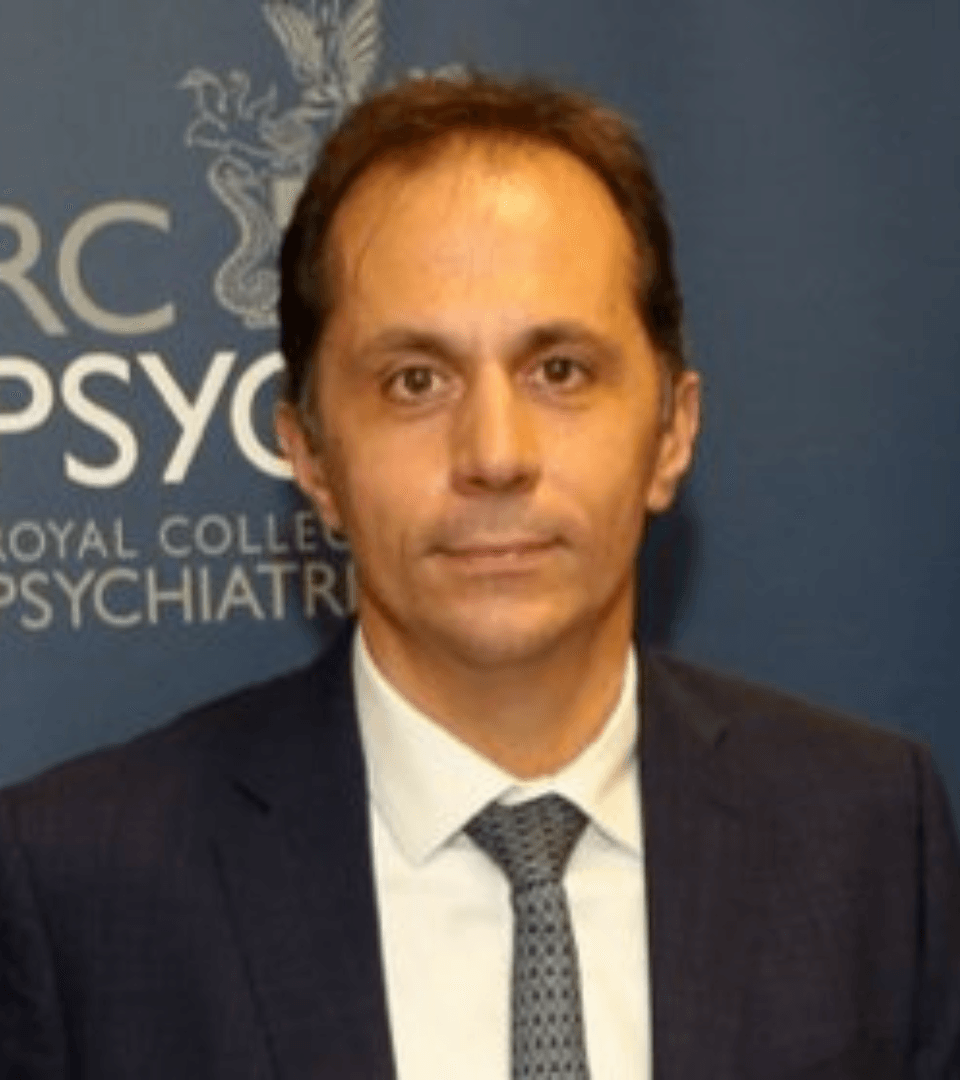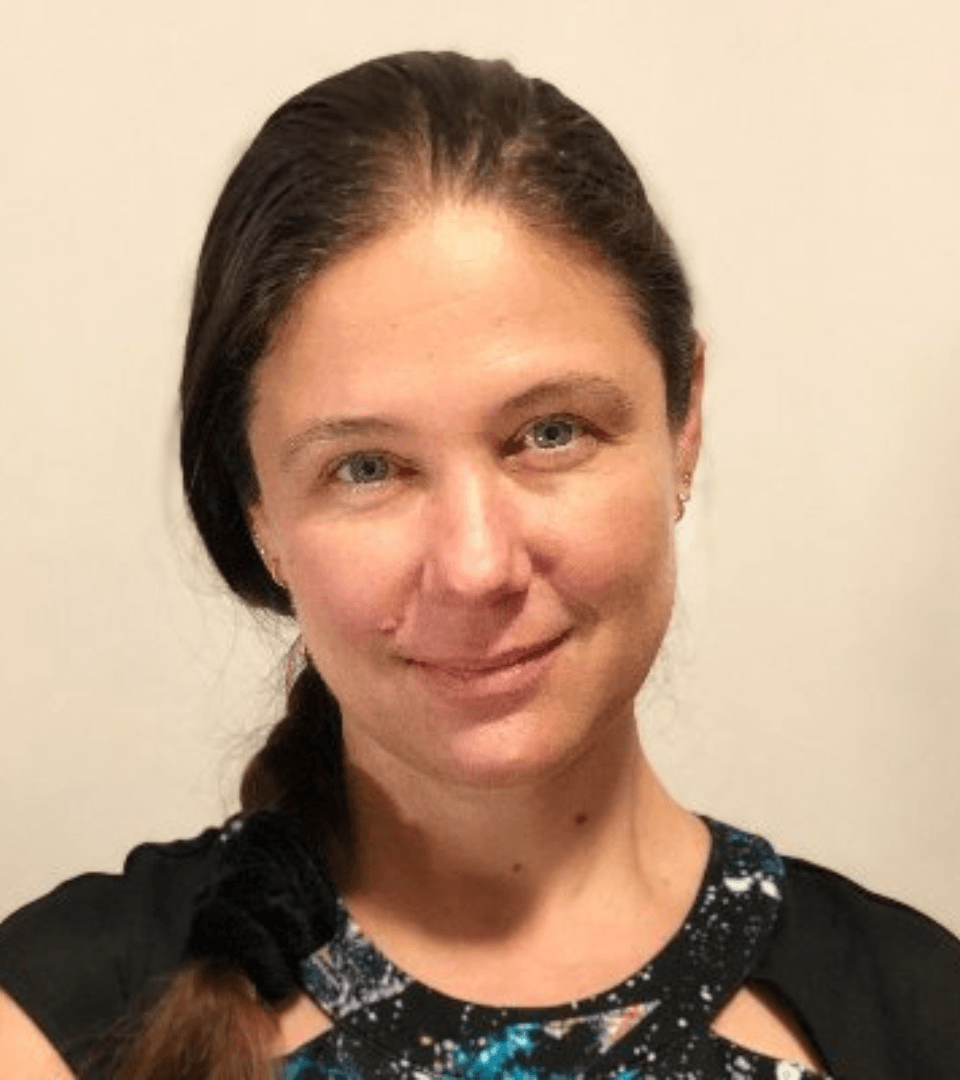Our Leadership

Andrea Cipriani
Director of GALENOS, Department of Psychiatry, University of Oxford
Andrea’s main research interest is evidence-based mental health and precision psychiatry. His research focuses on the evaluation of pharmacological, psychological and psychosocial interventions, mainly about major depression, bipolar disorder and schizophrenia.

Georgia Salanti
Head of the Evidence Synthesis Methods Research Group, Institute of Social and Preventive Medicine, University of Bern.
Head of the Evidence Synthesis Methods Research Group, Institute of Social and Preventive Medicine, University of Bern. Georgia’s research focuses on the statistical modelling for evidence synthesis and the methodology of systematic reviews. She is particularly interested in publication bias issues, the impact of missing outcome data and network meta-analysis. Several of Georgia’s methodological developments have been applied to answer clinical questions in mental health.

Julian Elliott
CEO Covidence, Cochrane Australia, School of Public Health and Preventive Medicine, Monash University
Julian is one of the world’s leading researchers in the use of technology for evidence synthesis. He developed the Living Evidence model: high quality systematic reviews and guidelines that are kept continually up to date with the latest research.

Toshi Furukawa
Professor of Clinical Epidemiology, Departments of Health Promotion and Human Behavior, and of Clinical Epidemiology
Toshi is professor of Health Promotion and Human Behavior at the Kyoto University School of Public Health. His seminal research focuses both on theoretical aspects of research synthesis and meta-analysis, as well as their application in evidence-based medicine.

Matthias Egger
Professor of Epidemiology and Public Health, University of Bern
Matthias Egger is professor of epidemiology and public health at the University of Bern in Switzerland, as well as professor of clinical epidemiology at the University of Bristol in the United Kingdom. His research focuses on methodological and substantive issues in clinical epidemiology and public health medicine, with a focus on meta-analytical research, HIV/AIDS and other infectious diseases, and socioeconomic differentials in health.

Karla Soares-Weiser
Editor-in-Chief, Cochrane
Karla Soares-Weiser, MD, PhD, MSc, is the editor-in-chief of the Cochrane Library. A board-certified clinician, she also has a doctorate in evidence-based health care and has been working in this field since 1997. She is the author of over 60 Systematic Reviews, including 33 Cochrane Reviews.

James Thomas
Director of the Evidence for Policy and Practice Information and Co-ordinating Centre (EPPI-Centre), UCL
James Thomas is Professor of Social Research & Policy at the EPPI-Centre. His research is centred on improving policy and decision-making through more creative use and appreciation of existing knowledge. It covers substantive disciplinary fields – such as health promotion, public health and education – and also the development of tools and methods that support this work conducted both within University College London (UCL) and in the wider community.

Susan Michie
Director of UCL Centre for Behaviour Change, UCL
Professor Susan Michie, FMedSci, FAcSS, FBA is Professor of Health Psychology and Director of the Centre for Behaviour Change at University College London. Her research focuses on human behaviour change in relation to health and the environment: how to understand it theoretically and apply theory and evidence to intervention and policy development, evaluation and implementation. Her research, collaborating with disciplines such as information science, environmental science, computer science and medicine, covers population, organisational and individual-level interventions.

Carmen Moreno
Associate Professor of Psychiatry, Complutense University School of Medicine, Madrid
Carmen Moreno is a Child Psychiatrist and Associate Professor of Psychiatry at the Complutense University School of Medicine, Madrid, Spain. Dr. Moreno has been focusing her career on early-onset psychiatric disorders, mainly psychotic and affective disorders, and recently also other neurodevelopmental disorders. She is recognized by her studies in raising awareness of misdiagnosis of bipolar disorder in children and adolescents. Dr. Moreno is actively involved on research projects exploring key biological aspects of early-onset psychiatric disorders. Her efforts are also focused on exploring secondary effects of psychopharmacological interventions and towards development of new treatment interventions in young patients, being currently involved on independent clinical studies towards this end.

Emily Sena
Professor of Meta-science and Translational Medicine, Edinburgh University
Emily is specialised in the validity of preclinical research and has a background in pharmacology and neuroscience. Her interests are in the use of meta-research approaches to drive improvements in the validity, transparency and reproducibility of primary research using laboratory models of human diseases. Her work has informed laboratory practice guidelines, editorial policy and clinical trials design.

Soraya Seedat
Distinguished Professor of Psychiatry and Executive Head of the Department of Psychiatry at Stellenbosch University.
Soraya holds the South African Research Chair in Posttraumatic Stress Disorder and directs the South African Medical Research Council Unit on the Genomics of Brain Disorders. She is an expert in the field of posttraumatic stress disorder (PTSD) and anxiety disorders, in adolescents and adults, and in the investigation of biological mechanisms of risk and resilience and has published widely in these areas.

Janna Hastings
Assistant Professor of Medical Knowledge and Decision Support, Institute for Implementation Science in Health Care, Faculty of Medicine, University of Zurich.
Since August 2022, Dr Hastings has been Assistant Professor for Medical Knowledge and Decision Support at the Institute for Implementation Science in Health Care, Medical Faculty, University of Zurich, and a member of the board of directors of the School of Medicine at the University of St.Gallen. She studies the impact of digitalisation in clinical contexts. Her research covers: clinical information systems, knowledge management, evidence synthesis, decision support, artificial intelligence and their impact in practice in clinical practice for clinicians and healthcare users.

Stefan Leucht
Head of Section Evidence Based Medicine in Psychiatry and Psychotherapy, Technical University of Munich.
Professor Leucht carries out randomised controlled trials about clinical aspects of schizophrenia treatment, he is conducting research on methodological aspects of clinical trials and has interests in compliance, medical decision making and pharmocogenetics.
Malcolm Macleod
Professor of Neurology and Translational Neuroscience, Edinburgh University
Professor Malcolm Macleod’s group led the development and application of systematic review and meta-analysis to the analysis of data from animal studies modelling neurological diseases such as stroke.

Parisa Mansoori
Research Lead, MQ Mental Health Research
Parisa leads the Growing Talent Programme at MQ which aims to expand and diversify workforce in mental health research. She is passionate about collaboration and prior to joining MQ, she led on setting up and managing the UK Mental Health Translational Research Collaboration on behalf of the National Institute for Health and Care Research (NIHR).

Tatenda Kambeu
Advocacy Officer for the Ndinewe Foundation
Tatenda is the Advocacy Officer for the Ndinewe Foundation, a youth organisation promoting good mental health and wellbeing in Zimbabwe. “My interest in becoming a GLEAB member stems from my passion for community health advocacy particularly in the mental health space. The GLEAB has provided me with an opportunity and platform where I am able to positively contribute to the improvement of mental health treatment services through addressing the gap that exists between interventions and their practicality. Additionally, this is a great opportunity to expand my understanding of the importance of integrating lived experience expertise with academic research. I am looking forward to a journey filled with learning, growth, and an impactful experience.”

Lea Milligan
MQ Mental Health Research
Lea Milligan was the CEO of MQ Mental Health Research before his sudden passing in April 2024 following a short illness and was a founding member of the GALENOS Leadership.